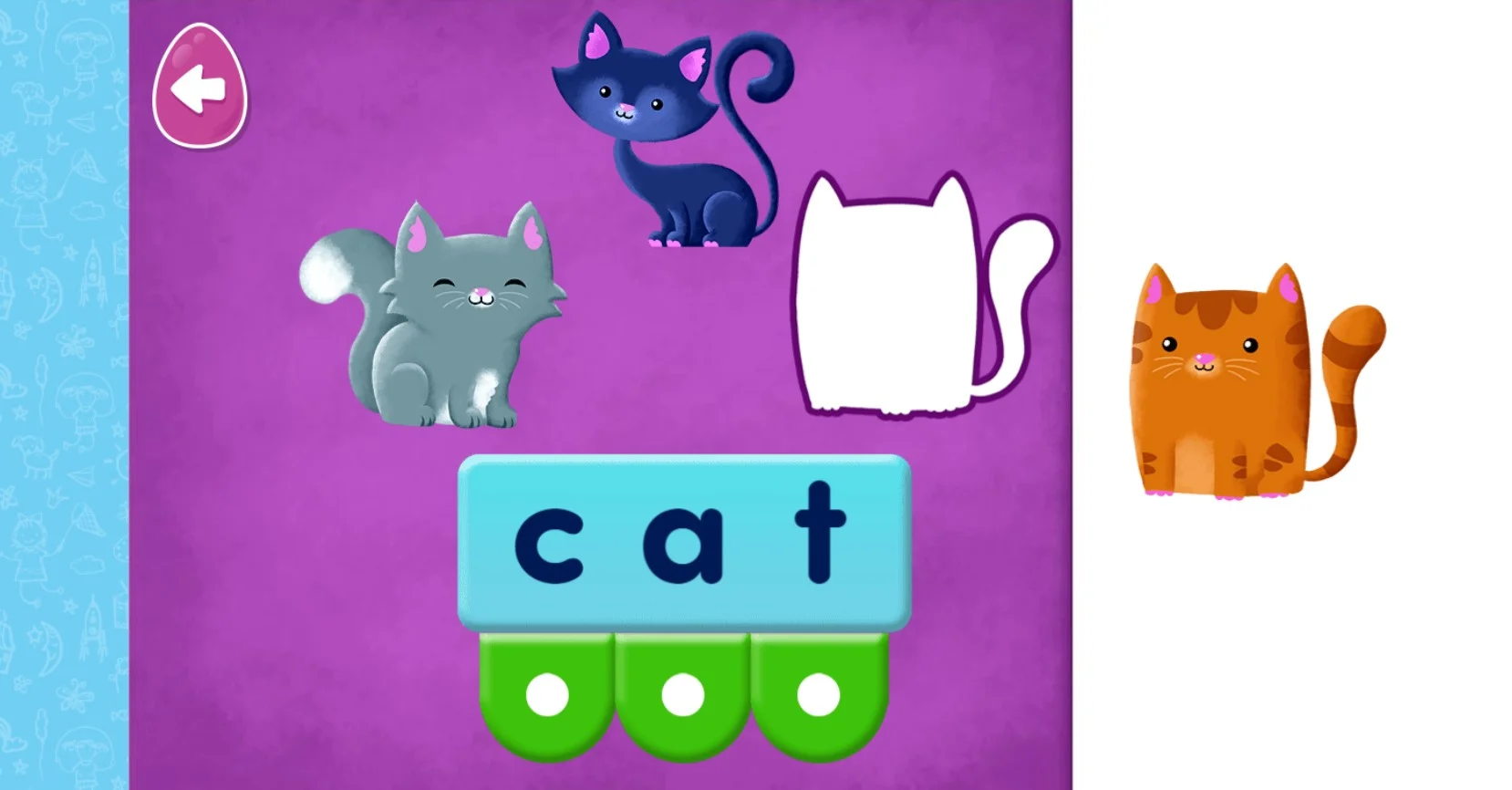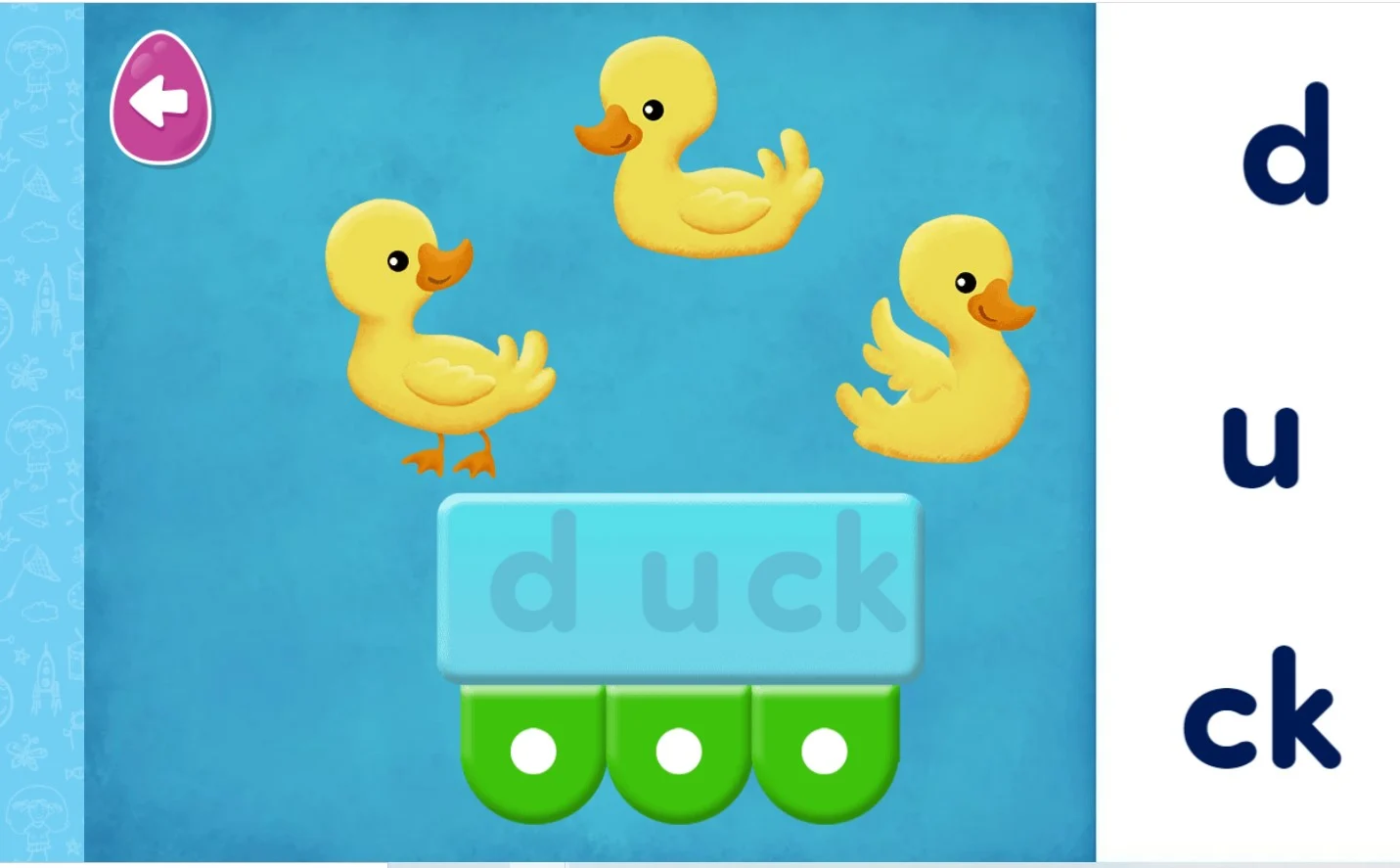


5 Ways to Help Kids Sound Out Words

Word decoding is the ability to use existing knowledge of letter‑sound relationships to correctly pronounce printed words. The Reading Eggs multi‑award winning online reading programme helps make learning this skill fun and engaging! Free trial
Cracking the reading code takes practice and repetition. Decoding words, or sounding them out, is the ability to apply existing knowledge of letter-sound relationships to correctly pronounce printed words.
Many children develop the ability to decode words over time with regular reading practice.
However, struggling readers may require a little more repetition to hone this crucial skill. Children also benefit from explicit instruction according to the science of reading.
Phonics instruction is an essential component of learning to read and involves teaching your child how to decode words by correlating sounds with letters in a systematic way.
Here are five helpful ways you can help your child sound out words.
1. Explain the “how” of decoding words
When your child comes across a word they're unfamiliar with, show them how they can sound out the word themselves by breaking it up into smaller parts (e.g. /c/…/a/…/t/).

Learning to read is turned into a fun game with this interactive activity in Reading Eggs Junior. Words are broken down into 'sound buttons' for each phoneme, then pronounced as a whole. Watch your child learn to read with an Reading Eggs free trial.
Help your child identify the phonemes – the single units of sound that distinguish one word from another – in words (e.g. /b/…/ur/…/n/).
There are 44 phonemes in the English language. Phonemes charts can be found online.
The English language also contains many irregular spelling rules which can make sounding out particular words confusing.
For example, the letter combination 'ch' in the words 'chef', 'choir' and 'cheese' has three different pronunciations.
Then there are tricky words, like 'said', 'are' and 'was'.
Take time to help your child learn the pronunciation of every new word along with its meaning, in order to help them identify 'irregular' words by sight.
Decoding plays an important role and needs to be taught alongside other skills to help children reach a skilled level of reading, as you can see in Scarborough's Reading Rope (explained in the video below).
Help your child decode and sound out words with Reading Eggs
ABC Reading Eggs is the multi‑award winning online reading program for ages 2–13, where kids can learn to read in 30 days for FREE! Children will love the fun, engaging games that teaches them phonics and how to decode words.
2. Teach blending
Blending is a crucial step in becoming a fluent reader.
Put simply, blending is the ability to smoothly combine individual sounds together in words.
For example, an early reader may read out each individual sound in the word 'fast' like /f/…/a/…/s/…/t/, while smooth blending would be sounding the word out as /faasst/.
Synthetic phonics involves identifying sets of letters and sounds and blending the sounds all the way though the word. The next step is to segment the word into sounds to spell it.
For example, children learn that '/d/' '/o/' '/g/' are three individual sounds that can be sounded out and then blended together to make the word 'dog'.

The Reading Eggs Fast Phonics programme is based on academic and government‑led research into the most effective method to teach reading which is synthetic phonics instruction. Get your child on the right track with a Reading Eggs free trial.
Fast Phonics makes learning to read fun
Synthetic phonics play an important role with identifying sets of letters and sounds, blending sounds and synthesising them. Reading Eggs Fast Phonics was developed according to academic and government‑led research into the most effective method to teach reading. Try the online systematic, synthetic phonics program to help your emergent and early reader learn to read or fill gaps for your older student.
3. Write it down
When helping your child sound out words, consider the following:
Say it slowly – stretch out words so that it's easier to hear the sounds. Vowel sounds are usually the easiest to stretch out.
Hold the sound – Starting with the first sound, hold it and stop.
Find the letter – Help your child identify the letter whose sound matches the sound they have identified.
Write it down – Write that letter down straight away, without waiting until the entire word has been sounded out. Help your child write a letter or letter combination for each sound as soon as the sound is identified.
Writing each sound as you go will help your child remember early sounds in a word by the time, they figure out later sounds.

There are opportunities within Reading Eggs lessons to build writing skills, such as tracing letters and relating them to listening to sounds in Reading Eggs Junior. For more advanced writing tasks check out the Story Factory area. Try Reading Eggs free for 30 days today!
The Reading Eggs phonics approach includes sounding out letters, as well as the next step which is building words using onset‑rime. Get a free trial today to access activities and games to help your child master these skills in a fun way!
4. Play with onset and rime combinations
An onset is the first phonological unit of any word and a rime refers to the string of letters that follow.
You can play with onset and rime by cutting out pieces of cards and writing an onset phoneme on each one, for example, b c f p r s m and h.
Write the word at on a separate piece of paper. Ask your child to look at the rime at and decide if they have an onset phoneme that would correctly complete the word (e.g., b + at = bat).

Teaching children about onset and rime helps them to decode new words when reading and spell words when writing. Try hundreds of fun online phonics activities with a Reading Eggs free trial.
5. Read aloud
Set aside regular time to read aloud with your child and watch them pay attention to your tone, pronunciation and the emphasis you put on certain words.
Not only is this a great way to show children how fun reading books can be, but it also helps them start to see how printed words are closely connected to spoken words.
Reading aloud with your child helps them associate individual sounds with printed letters and letter combinations.
Let your child hear you read aloud slowly while watching your finger identify each sound.
Programs like ABC Reading Eggs include read-aloud options with eBooks for early readers, highlighting individual sounds as they are being read out.
So, as you can see helping kids learn how to sound out is such an important step on the path of helping a child learn to read proficiently.
Use the ideas, strategies and links to resources mentioned above to help your child master this skill before moving on to the next step of their reading journey, particularly if they're struggling or have additional needs.
Repetition and practice in a systematic way is key.
Also consider positive screen time options like using educational apps or the multi‑award winning Reading Eggs online reading program.
This is a sure-fire way to ensure your child reinforces everything they need to know about sounding out words and phonics in a fun, engaging way!
Help your child decode and sound out words with Reading Eggs
ABC Reading Eggs is the multi‑award winning online reading program for ages 2–13, where kids can learn to read in 30 days for FREE! Children will love the fun, engaging games that teaches them phonics and how to decode words.




